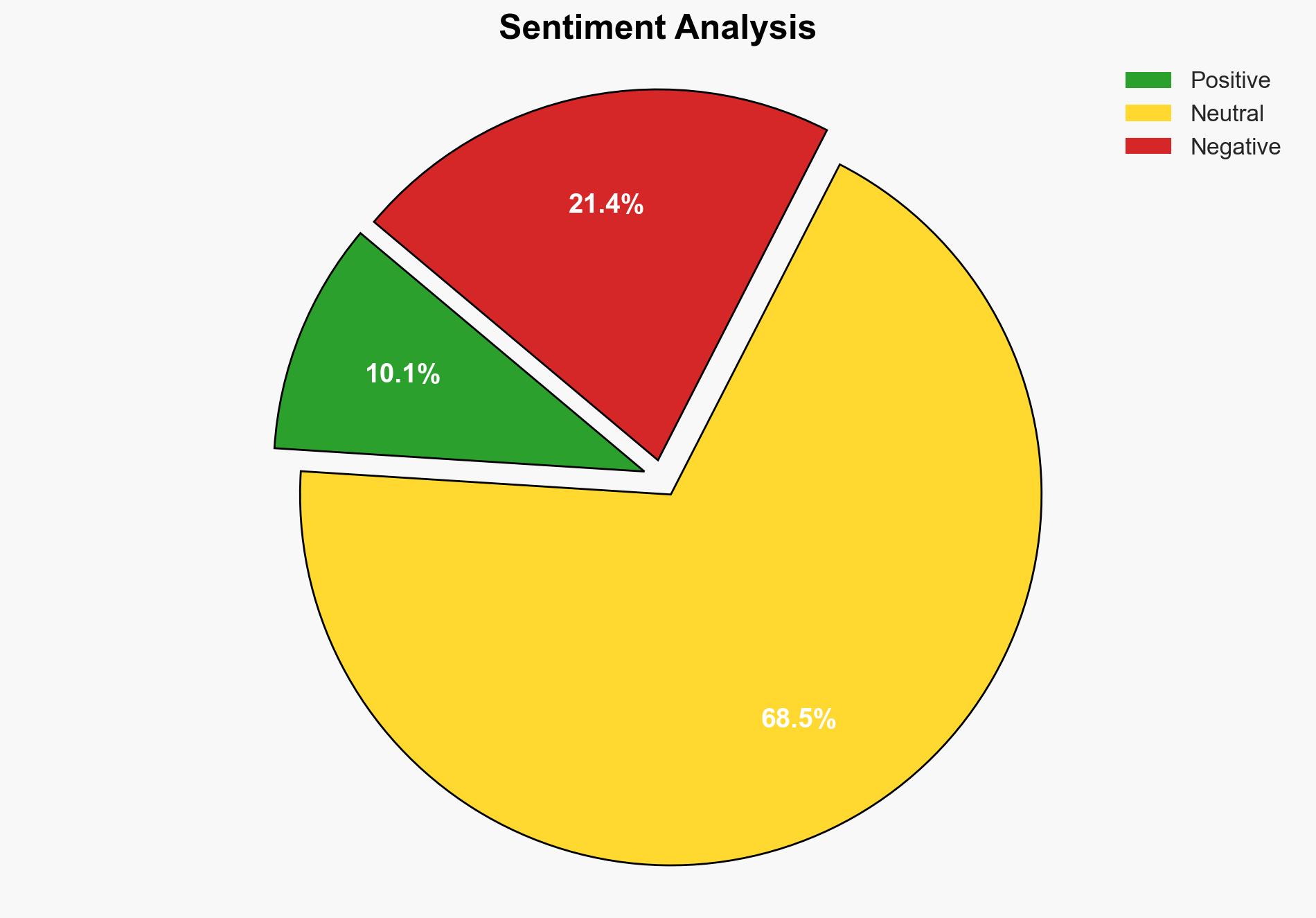Tokyo Court Orders Japans First-Ever Revocation of Religious Legal Status for Unification Church – Time
Published on: 2025-03-25
Intelligence Report: Tokyo Court Orders Japan’s First-Ever Revocation of Religious Legal Status for Unification Church – Time
1. BLUF (Bottom Line Up Front)
The Tokyo District Court has ordered the dissolution of the Unification Church’s legal status in Japan, marking the first such revocation for a religious organization in the country. This decision follows a government request spurred by investigations into the assassination of Shinzo Abe and alleged manipulative practices by the church. The ruling requires the church to liquidate its assets and removes its tax-exempt status. The church plans to appeal, citing threats to religious freedom and human rights.
2. Detailed Analysis
The following structured analytic techniques have been applied for this analysis:
General Analysis
The court’s decision is based on evidence of manipulative fundraising and recruitment tactics by the Unification Church, which have reportedly caused harm to followers and their families. The church’s practices were found to deviate significantly from legal norms for religious organizations. The investigation into Abe’s assassination revealed links between the church and Japan’s political landscape, particularly with the Liberal Democratic Party. The church’s historical ties to influential political figures and its controversial methods have drawn scrutiny and legal challenges.
3. Implications and Strategic Risks
The revocation of the Unification Church’s legal status poses several risks and implications:
- Potential destabilization of religious freedom and human rights discourse in Japan.
- Increased scrutiny and potential legal actions against other religious organizations with similar practices.
- Possible diplomatic tensions with South Korea, where the church is based.
- Economic impacts from the liquidation of the church’s assets and the loss of its tax-exempt status.
4. Recommendations and Outlook
Recommendations:
- Monitor the appeal process and any subsequent legal developments closely.
- Engage in dialogue with religious organizations to ensure compliance with legal standards while respecting religious freedoms.
- Consider regulatory reforms to prevent manipulative practices by religious entities.
Outlook:
Best-case scenario: The appeal leads to a resolution that balances legal compliance with religious freedom, setting a precedent for future cases.
Worst-case scenario: The decision exacerbates tensions between religious groups and the government, leading to widespread unrest.
Most likely outcome: The church’s appeal is partially successful, resulting in modified regulations and increased oversight of religious organizations.
5. Key Individuals and Entities
The report mentions the following significant individuals and entities:
- Shinzo Abe
- Yoshimasa Hayashi
- Tomihiro Tanaka
- Susumu Murakoshi
- Unification Church
- Family Federation for World Peace and Unification





